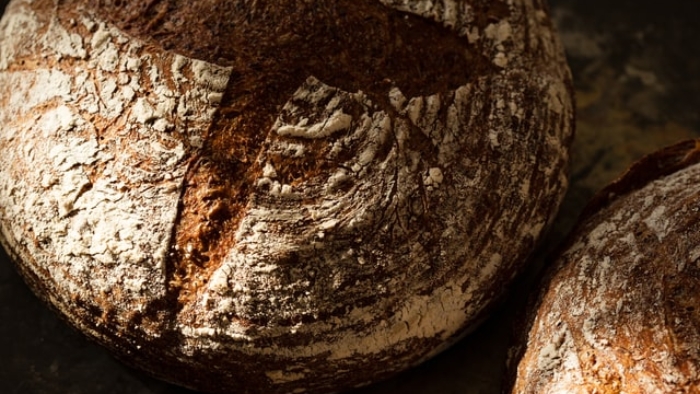As the pandemic has radically altered what daily life and practices look like, it’s likely affected most of our sense of time. For those of us working from home, the rhythms of the workday have become unfamiliar. For those of us who have lost jobs during the pandemic, those rhythms have ceased altogether. Social seasons, such as graduations and summer expectations, are upended.
Perhaps this is part of the reason that bread baking, particularly from naturally-leavened starters, has taken off as a quarantine activity (if you’re looking for a place to start, try Tartine Bakery’s recipe or book). It’s a practice directed towards the substance and pleasure of nourishment, but it’s one that takes and shapes time. There are the hours of rising and resting for the dough, the rhythms of feeding the starter throughout the week, the careful attentiveness of neither over nor under baking. At risk of overthinking baking, there’s a chance that these patterns might work to re-form a disrupted sense of time.
Tish Harrison Warren might describe this as a liturgy–an intentional, formative practice of daily life. In an online conversation, she explores the place of ordinary liturgies in these extraordinary times. In his song, “Simple Life,” Ben Kyle depicts a tension between a world in flux that would form the speaker in one way, and an envisioned “simple life.” Meanwhile, Mark Boyle describes his tech-free life as “Not So Simple,” offering a unique vision of how his sense of time has been formed after forswearing modern technology.
In a sermon delivered last October, Ellen Davis considers the prophet Jeremiah, whose story she describes as “uncomfortably pertinent.” While Davis is preaching in light of ecological crisis, her sermon, too, is uncomfortably pertinent to pandemic times. Jeremiah, she says, offers us a prophetic model as he looks “squarely at the unthinkable” and then thinks and lives in hope. He works within the constraints of the present, she says, suggesting we too seek “the concrete, good thing we can do, however small it may seem,” whatever simple practice that might be.
Find more resources at Resources for Sheltering at Home.
Grant Shellhouse works as the Hospitality Manager at Laity Lodge. He earned his Master in Divinity from Duke Divinity School, where he gravitated towards Christian agrarianism, ecologically-informed theology, food and faith, and environmental ethics. He and his wife, Wylie, live in Kerrville, Texas, where he grows as many tomatoes and Texas native plants as his apartment patio will allow.









Add a Comment